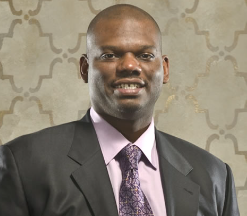The pandemic has slowed the earning power of Black women. And any gains Black women have made over the years in income inequity has been nearly lost.
Black women already made less, and they earn just 63 cents for every dollar white men make. This disparity has only closed three cents in the past 30 years, according to the National Women’s Law Center. NWLC says due to this income disparity, Black women lose out on $964,400 over a 40-year career.

“People talk about the pay gap in this tiny little area; they don’t understand the ramifications of what that means,” Gloria Blackwell, senior vice president at the American Association of University Women, told The Huffington Post. “In over a 40-year career, Black women lose on average nearly a million dollars when you compare it to white men. I think there’s a lot of Black women could do if they had a million dollars over that time. We could definitely chip away at the wealth gap that keeps Black women and their families constantly struggling, not just to get ahead, but to maintain and keep up.”
The pandemic has exacerbated the situation.
Black Women’s High Rate of Unemployment During Pandemic
The unemployment rate for Black women reached 16.6 percent in May 2020 and remained in the double digits for the next six months, according to NWLC’s latest report. In June 2021, the unemployment rate for Black women did fall 8.5 percent, but it was still 1.7 times more than their unemployment rate before the pandemic.
“So we see the pandemic as increasing the negativity around Black women’s ability to move forward in their careers, to be able to create and build wealth, to be able to have some of the flexibility and some of the career level support that are really important in a career,” Blackwell.
Pandemic Job Losses Impacted Black Women Disproportionately
Most of the jobs lost during the pandemic were service jobs in sectors that employ a large number of Black women, including in retail, hospitality and tourism. In addition, says Blackwell, many Black women, especially mothers, have had to take on financial stresses related to coronavirus as the sole or primary breadwinners in their households.
Saddled With High Debt
Besides battling unemployment, Black women also carry high student loan debt. “Student loans figure into this as well,” Blackwell said. “We know Black women have more student loan debt overall. And many of these stop-gap measures, housing, student loans, many of these things are left to fall by the wayside, and people have to start pretending that the pandemic never happened. They’re going to have an inordinate impact, a greater impact on Black women. Black women’s earning power has clearly been hurt by the pandemic, and that will certainly contribute to a widened pay gap.”
Facing Economic Insecurity
Black women are experiencing economic insecurity at rates greater than their white counterparts.
A report released by Essence Ventures, the parent company of Essence Magazine, reveals that 56 percent of Black women surveyed did not have access to food and bare household essentials.
Health Disparities
In addition to economic insecurities, Black women also suffer from health disparities, both reports found. An estimated 63 percent of Black women reported that the pandemic had harmed their mental health. In comparison, 43 percent said it had impacted their physical health, according to the survey conducted by Essence.
Access to Educational Resources
The Lean In Survey sponsored by Essence communications revealed that 85 percent of Black women polled did not have adequate access to technology to support their children’s educational needs during remote learning. In addition, the NWLC finds that Black women were unable to pursue educational advancement during the pandemic because of lack of employment or low wages.




